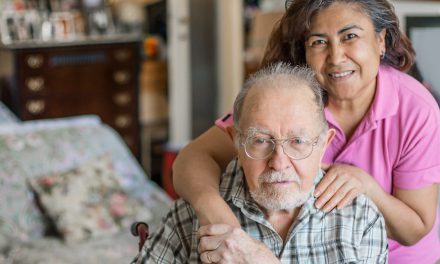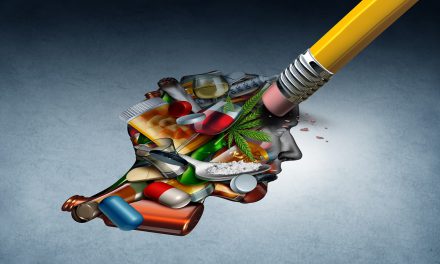Earlier this year, Missouri and other states across the nation implemented social distancing directives and stay-at-home orders to mitigate the spread of COVID-19. The primary goal was to flatten the curve and help hospitals and health systems preserve essential resources and protective garments required to care for sick patients.
Since then states have reopened their economies for business and social activities. But, while states have moved forward with their reopening plans, the impact of the lockdowns has consistently affected a vulnerable group: people who struggle with substance use disorders (SUDs) and recovery.
Struggling with Addiction and Co-Occurring Mental Health Conditions
An estimated 20 million Americans, 12 years or older, suffer from illicit drug or alcohol misuse, according to the latest results of the Substance Abuse and Mental Health Services Administration (SAMHSA) National Survey on Drug Use and Health (NSDUH) report.
This estimate, as noted by the Missouri Department of Mental Health (DMH), includes thousands of adolescent and adult Missourians: 294,000 with an alcohol use disorder, 137,000 with an illicit drug use disorder, and 192,000 with a serious mental illness.
Those with a serious mental illness were included for a reason. The National Institute on Drug Abuse (NIDA) notes that many individuals with SUDs also have diagnosed mental health conditions and disorders — and vice versa. Common co-occurring, also known as comorbid, conditions and disorders include anxiety, depression, bipolar disorder, attention-deficit hyperactivity disorder (ADHD), and schizophrenia.
The Department of Health and Human Services (HHS) provides reasons why SUDs and mental health conditions occur simultaneously: the use of certain illicit drugs may cause people to experience one or more symptoms of a mental health issue; and the misuse of substances to self-medicate when coping with mental health issues sometimes lead to SUDs. HHS also states that brain changes, genetic vulnerabilities, and early stress or trauma exposure can be accountable factors for the co-occurrence in some cases.
Straining to Stay Sober During COVID-19
During this pandemic, these individuals must not only manage their typical daily life stressors but also coronavirus-related stressors. The managing and navigating of multiple stressors, while battling addiction and straining to stay sober, is difficult.
Past research proves that such stress can leave them susceptible to relapses — and indeed, they’ve been susceptible in the middle of this pandemic. Research by the Addiction Policy Forum confirms a rise in substance use among some individuals with SUDs.
The Addiction Policy Forum’s pilot study, supported in part by the National Institute on Drug Abuse (NIDA), analyzed the survey responses of more than 1600 patients, families, and survivors in their network. Of the more than 1600 respondents, about 20% reported an increase in their use of substances during COVID-19.
More troubling, in this same study, 4% of the respondents reported overdoses, 1% of which was fatal. All the more troubling is that suspected drug overdoses have skyrocketed monthly during this pandemic. Across the nation, fatal and non-fatal drug overdoses, compared with last year, increased to 18% in March, 29% in April, and 42% in May, the Washington Post reports.
Longing for Human and Social Connection
Before the pandemic, in-person connection was a primary coping strategy for SUD relapse prevention. Individuals typically engaged in social and recreational recovery programs and services on a weekly basis.
Such engagement provided face-to-face contact, community connection, and peer-to-peer support. This social support is an important factor in successfully maintaining the battle for sobriety.
“Social supports are fundamental for providing a structure that will increase the likelihood that they will succeed,” says Dr. Nora Volkow, director of NIDA, in a video on the topic.
NIDA research supports Dr. Volkow’s statement. As part of a NIDA Intramural Research animal study, published in Nature Neuroscience, researchers gave rats a choice between two drugs for self-administration and social interaction — and the rats chose social interaction consistently. They only relapsed, or chose the drugs, when they had no access to other rats.
Human behavior is more complex than animal behavior, but the results of this study shows the benefit of social contact and reinforcement.
Stay-at-home orders and social distancing directives, however, eliminated traditional social structural systems — and these individuals are longing for physical interaction with others.
Support group meetings, therapy sessions, health and clinical visits have all gone virtual as a result of the coronavirus. This is especially challenging for Americans in rural areas where internet connectivity is a problem. In Missouri, for example, Federal Communications Commission (FCC) data shows that approximately 600,000 residents, in rural areas, lack high-speed internet access.
A lack of internet access and the inability to connect with others online can result in both isolation and boredom. Isolation and boredom can result in relapse and exacerbation of substance use. Relapse and exacerbation of substance use, in turn, can result in overdose due to changing tolerance after non-use—and death in extreme cases.
What You Can Do To Help
The Well Being Trust and the Robert Graham Center for Policy Studies in Family Medicine and Primary Care project an additional 75,000 deaths due to drugs, alcohol, and suicide, known as deaths of despair, unless the nation acts by providing meaningful work, connecting people through online and virtual platforms, and integrating health and mental care.
On an individual level, what follows are a couple general things you can do to help family, friends, and/or loved ones who are fighting to maintain their sobriety during this time. Note that addiction triggers and support needs vary from one person to another. For other ways to help, you may find it beneficial to contact a medical professional or an addiction specialist.
Educate Yourself.
The stigma of addiction can greatly affect the well-being of people who are struggling, so it’s important to educate yourself with facts. Research SUDs and the disease of addiction to increase your knowledge. Become knowledgeable on the struggle stories of your family, friends, loved ones, and others to challenge your perspective.
By doing so, you will have the knowledge needed to responsibly help and communicate with others. And, you will be in a better position to do so without critical assumptions.
Create Trust.
COVID-19 has brought about stressful situations for everyone, including those who are struggling with SUD and in recovery. Creating a sense of trust so they can seek help is important, according to Dr. Nora Volkow, director of NIDA.
One of the first steps is to practice active listening. If a family member, friend, or loved one reaches out with their worries, concerns, and frustrations, be attentive without distraction, every time. This will provide you with an opportunity to better understand the person’s reality, respond with care and respect, and foster nonjudgmental support.
The next step is to check in frequently. As noted above, isolation and boredom can have negative effects on people struggling with SUD and addiction. By engaging with sincerity on a regular basis, your family member, friend, or loved one will be more confident in reaching out to you when wanting to vent thoughts and feelings. Follow this link to locate a therapist close to home. Also, Substance Abuse and Mental Health Services Administration (SAMHSA) has a National Helpline, 1.800.662.HELP (4357).








